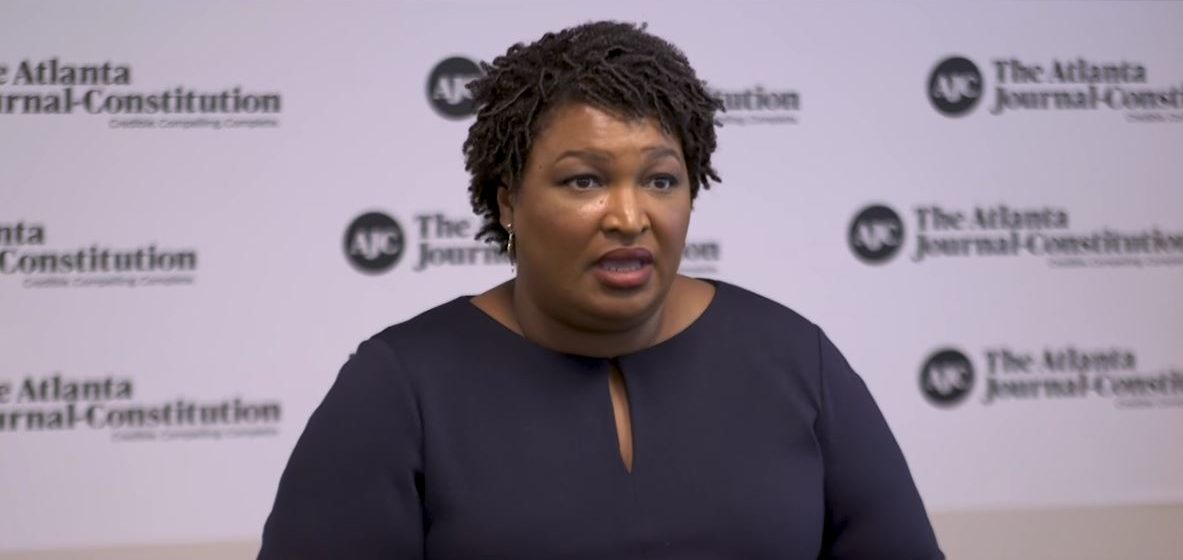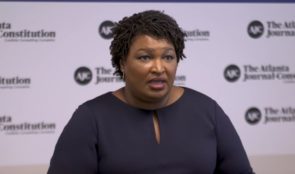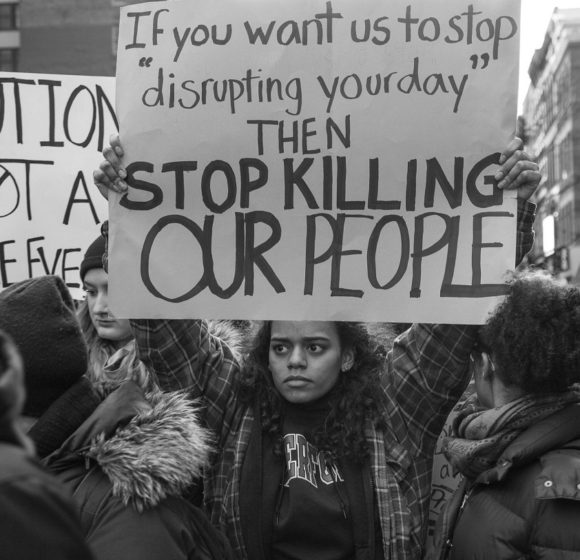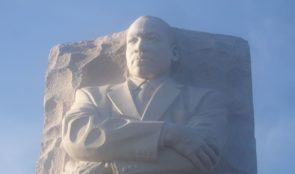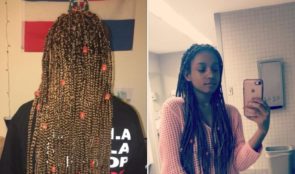This week I visited over 130 registered voters living in 79 houses in Stone Mountain, Georgia. My volunteer partner and I spent four hours canvassing, walking nearly five miles house to house – all in an effort to elect Stacey Abrams as the first female African-American governor in U.S. history. Her potential election creates discomfort in many white folks, some because of blatant racist views, but others for reasons event they can’t or won’t name.
After two years of Trump’s rhetorical attacks on women and minority groups, and the attempted bomb attacks directed at Democratic leaders, Abrams, a female African-American Democrat, represents all that partisan, racist, and misogynist nationalists now openly and actively oppose. Their reasons are simple, and it is the same reason that I decided to campaign for Ms. Abrams.
White privilege.
White women like me must confront the privilege of whiteness, address our implicit biases, and trust Black women to lead us.
As a child in rural Louisiana, some of my earliest care-givers were African-American women. Cora and Betty watched over me, raised me. I trusted them to take care of me — and they did. But this trust is rooted in white supremacy. Their historical as well as literal predecessors were likely wet nurses on plantations where white women were complicit in slavery. Even today many nannies come from racial minority groups. All of my son’s teachers at his prior day care were African-American women.
White women trust African-American women, but only in so far as it allows us to maintain our privilege, whether as slave mistresses in antebellum times or working professionals today.
For white women, the privilege of whiteness often trumps gender. Fifty-three percent of white women voters supported President Trump; and many white woman rejected the sexual assault allegations of Dr. Christine Blasey Ford in support of now Supreme Court Justice Brett Kavanaugh.
African-American women, however, don’t have the luxury of that kind of choice; scholar Kimberlé Crenshaw, was the first to note the intersectionality of racial and gender identities where overlapping systems of oppression yield power. Ida B. Wells was both an anti-lynching advocate and a suffragette. Yet she and 60 other African-American women were asked to march at the back of the first suffrage parade in 1913 (Wells refused). The support of African-American women was welcomed in the suffrage movement, but not as leaders.
The pattern of relying on the support of African-American women to advance social movements has repeated itself time and time again. Feminist activist Gloria Steinem has acknowledged the early work of African-American feminists in waging early battles against sexual harassment. However, the credit for African-American women’s leadership in such movements often comes late.
There are many examples of white women, unconsciously and deliberately, co-opting the ideas of African-Americans. White actresses were credited with responsibility for sparking the #MeToo Movement, an action that Tarana Burke actually began more than a decade before.
The truth is, women of color have been leading all along.
Now it is time for white women to acknowledge that truth, and take action to support it. Any reticence is rooted in a fear of ceding power and female white fragility, a truth hard to face when it counters the image of women as sisters and allies.
While canvassing in a predominantly African-American neighborhood, I was forced to confront some of my own racial biases. One task is to recruit additional volunteers. As we talked with neighborhood residents, I found myself making assumptions about the interest and willingness of these folks to volunteer. My assumptions were, in part, based on class; but they were also probably based on race. I thought, ”these people are hard-working, they don’t have the time to volunteer” or ”they are poor and don’t have the resources to volunteer.”
Making these assumptions was a way in which I asserted my white privilege over and above the desires of the people I was talking “to” rather than “with.” Fortunately, my canvassing partner was more thorough. While some people declined others were indeed interested in volunteering.
The conversations that I enjoyed most were those where I had the chance to listen to undecided voters talk about the issues most important to them, whether or not those voters support Abrams. Listening in this way is not the act of a white savior; instead it is about humility and the affirmation of agency.
Step up, step back is a technique often used for decision making. In this moment white women are called upon to step up in support of candidates like Stacey Abrams with whom they share values, but not privilege or racial identity. Doing so provides us with a chance at redemption. They are also called to step back, to trust her leadership and the agency of African-American voters. We can trust African-American women to lead us — just as they have done many times before — towards a more just and equitable future for us all.
Dabney P. Evans, PhD, MPH is an Associate Professor at Emory University and a Public Voices Fellow of The OpEd Project.


